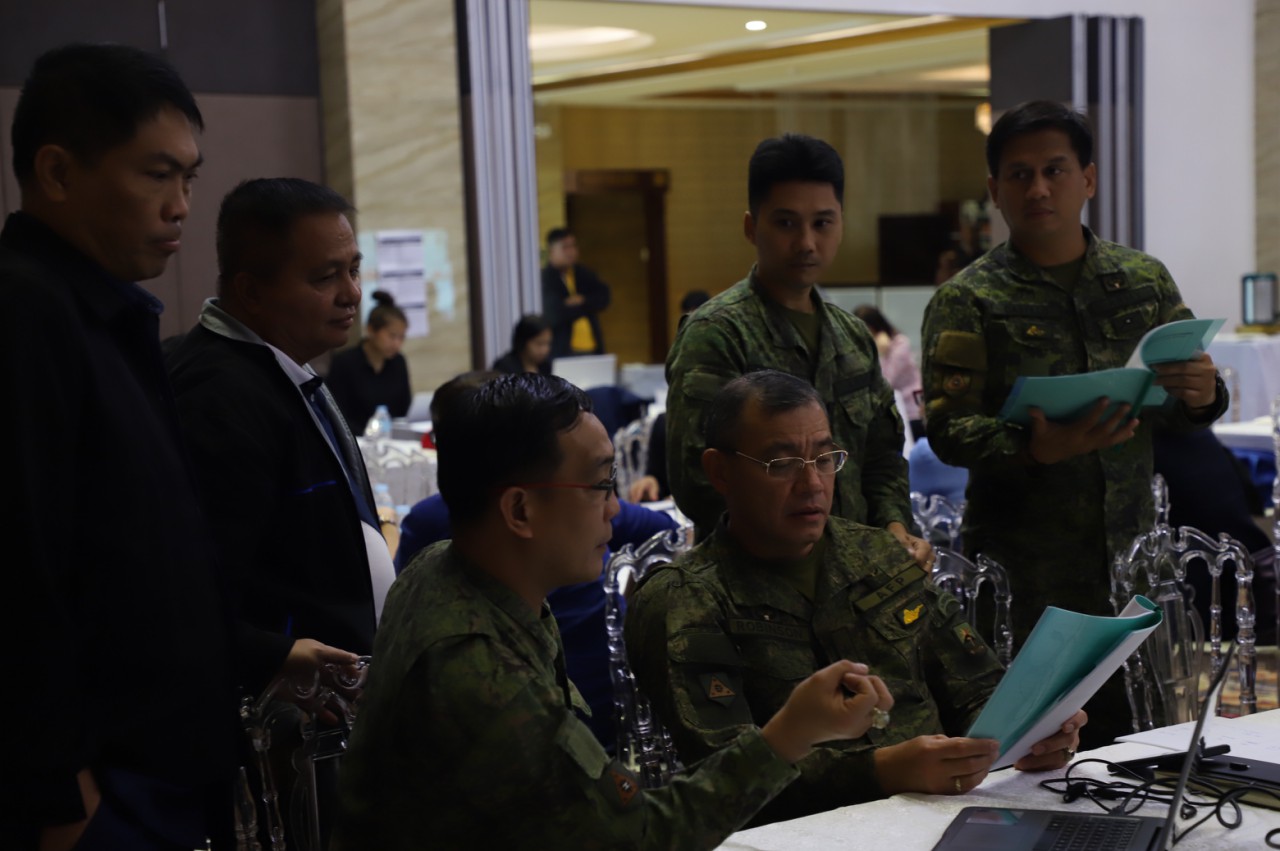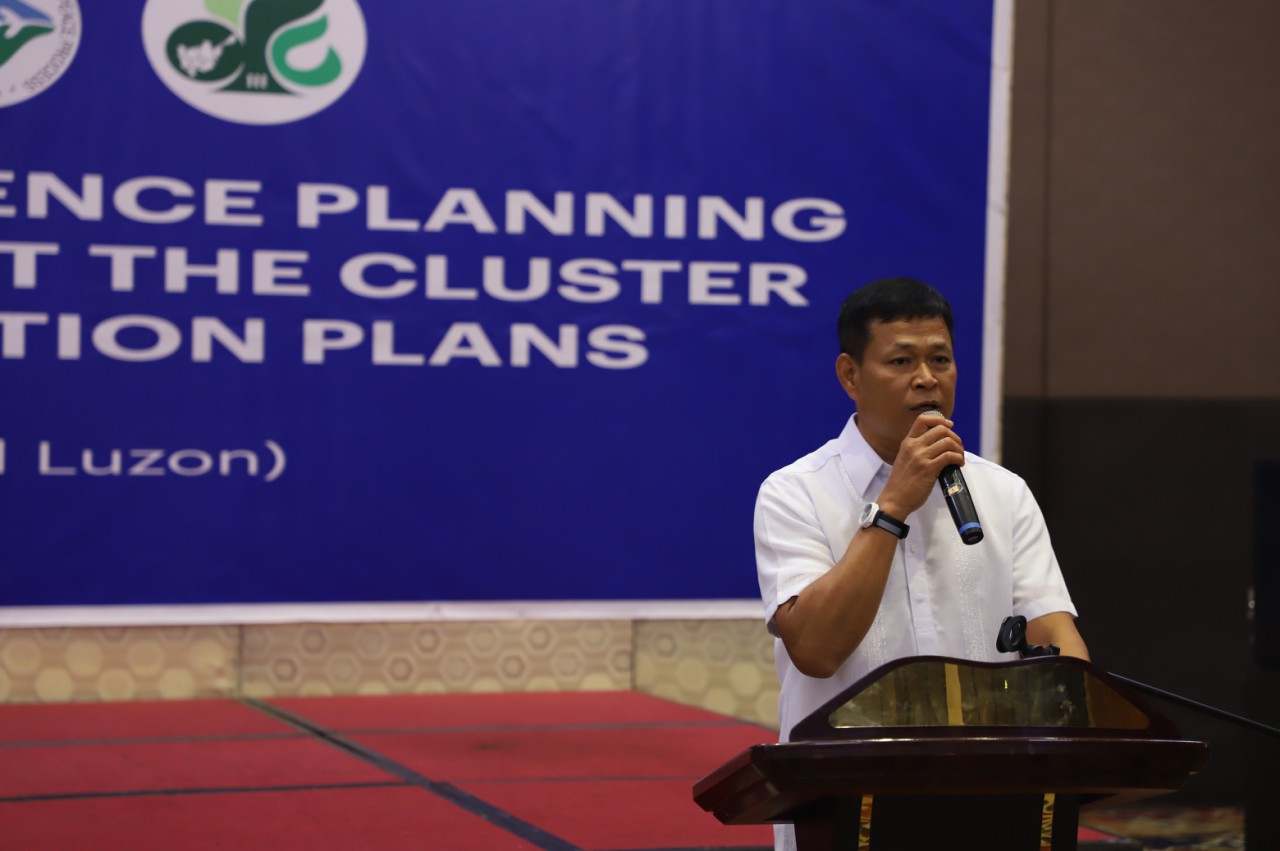
SAN FERNANDO CITY, PAMPANGA — Peace can never be a singular effort. In order to achieve it, the implementation of a “Whole-of-Nation” Approach is needed.
At the heart of this approach is good governance, coupled with the dynamic participation of residents in communities. This will be the key in addressing the scourge of communist insurgency in the country.
Peace, a shared responsibility
This was the prevailing theme during the two-day “Regional Convergence Planning Workshop to Craft the Cluster Implans and Action Plans” held here at the Kingsborough International Convention Center.
“Keeping the peace is a shared responsibility, for without us having ownership of it, peace can never be achieved,” said retired Brigadier General Abraham Casis, representing the Office of the Presidential Adviser on the Peace Process (OPAPP), in his remarks during the event.

Member agencies of the 12 Regional Task Force to End Local Communist Armed Conflict (RTF-ELCAC) III clusters convened to craft implementation plans (IMPLANs), which were grouped into three categories: local governance and development, legal and intelligence operations, and peace, security and justice.
The outputs of the convergence workshop will then be presented during the second meeting of the RTF-ELCAC III later in September to be attended by members of the Regional Development Council (RDC) and Regional Peace and Order Council (RPOC).
“There is no more fitting time to continuously plan and implement solutions to the communist insurgency than this month, which is the Peace Month,” Casis said, adding, “Kailangan po realistic ang ating mga programa, and these programs, they will be worthless if we cannot implement them.”
The workshop also aimed to mainstream and operationalize the provisions of Executive Order No. 70 in order to harmonize the implementation of national government agencies’ programs and projects in target communities based on a Whole-of-Nation Approach.
Closing the gap
According to Director Rolando Asuncion, Regional Director for Central Luzon of the National Intelligence Coordinating Agency, and Deputy Cabinet Officer for Regional Development and Security (CORDS) III, the national government’s anti-communist insurgency efforts need to address two main targets.
“Ano ba ang gusto nating mangyari? Hindi ba, to end local communist armed conflict? Dalawang (components) ho ‘yun — to reduce the current threats and to prevent recruitment and recurrence of the same to close the gap (between the two), that will be the principal target of convergence,” Asuncion pointed out.
He stressed the government cannot resolve the communist insurgency by itself and needs the full support of all stakeholders.
“There is a need for solidarity and cooperation, of not only us from the bureaucracy, but among the different sectors of society,” Asuncion said.
The 12 ELCAC clusters consist of: Local Government Empowerment; Basic Services; Poverty Reduction, Livelihood and Employment; Infrastructure and Resource Management; Sectoral Unification, Capacity-Building, Empowerment and Mobilization; International Engagement; Legal Cooperation; Situational Awareness and Knowledge Management; Strategic Communications; Local Peace Engagement; EClip/Amnesty Program, and; Peace, Law Enforcement and Development Support.
The two-day workshop was attended by representatives from the Department of Interior and Local Government, Philippine National Police, Armed Forces of the Philippines, National Bureau of Investigation, National Economic Development Authority, Department of Education, Commission on Higher Education, Technical Education and Skills Development Authority, Philippine Information Agency, National Intelligence Coordinating Agency, National Security Council, Department of Health, Department of Finance, Department of Budget and Management, Department of Public Works and Highways, Department of Agriculture, Department of Trade and Industry, Philippine Coast Guard, Department of Agrarian Reform, National Irrigation Administration, Department of Environment and Natural Resources, Philippine Health Insurance Corporation, Department of National Defense, Department of Social Welfare and Development, National Commission on Indigenous Peoples, Department of Science and Technology, and Department of Labor and Employment. ###

No comments:
Post a Comment
Note: Only a member of this blog may post a comment.